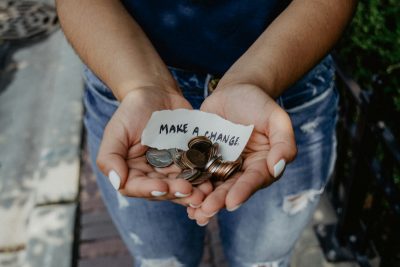The Joy of Giving: Building with What We Have
The Joy of Giving: How Africa’s Wealthy Are Changing the Narrative
Last Christmas, Daud K threw a wedding celebration fit for royalty. He flew in friends and business partners from across the globe—Kenya, Ghana, the UAE, the U.S., France, Brazil, and Ireland—to a luxury resort in the Comoros Islands. For a full week, they partied in style.
Daud’s rise to wealth came through smart property deals. Middle Eastern investors sought him out, eager to buy into his real estate projects in one of West Africa’s booming business capitals. Today, Daud represents a new generation of high net-worth Africans rising from the continent once dubbed “the Last Frontier.”
Africa’s Changing Image
For years, Africa was seen through a grim lens—poverty, disease, debt. But beneath those headlines was a different truth. In 2006, nearly half of Africa’s population was under 16, making it the youngest region in the world. A market like no other.
Still, the system failed most of its people. Millions remain locked out of basic services—clean water, education, healthcare, and access to credit. In desperation, some hand over life savings to traffickers, risking death to reach Europe by boat. They don’t see the promise Daud sees. Their Africa is one of frustration and survival, not opportunity and growth.
A New Breed of Builders
Despite the odds, a quiet revolution is underway. African economies are growing. Domestic investments in sectors like healthcare now outpace foreign aid. According to the World Health Organization, since 2001, 27 African countries have boosted health budgets. Countries like Rwanda and South Africa now meet or exceed the 15% benchmark of national spending on health. In some cases, governments are spending up to 20 times more than they receive in international assistance.
And it’s not just governments stepping up. Citizens are, too. One example is the I WILL GIVE (IWG) initiative—an innovative platform channeling personal and corporate giving into grassroots development.
The Contrast at Home
While Daud celebrates milestones on private yachts, his childhood neighborhood tells a different story. Just 40 minutes from his luxury developments, young people live without hope or access to opportunity. One tragic call is all it takes to remind him: a neighbor’s wife dies from a preventable childbirth complication, leaving three children behind.
All around him, the parties continue—red carpets, champagne, designer clothes. But what if a fraction of that wealth could change lives?
Purposeful Giving
This year, Daud is doing something different. He’s rallying his network to create a Giving Fund. The idea is simple: contribute at least 10% of party budgets to support communities through IWG. Corporate groups can convert their celebration costs or allocate up to 40% of CSR budgets to the platform. The funds will go directly to vetted, high-impact projects.
This isn’t charity. It’s ownership. It’s Africans funding African solutions.
Redefining Success
A new mindset is taking root. Giving is no longer seen as a luxury. It’s a duty. And when Africans fund local projects, it comes with a powerful advantage—accountability. People are more involved when it’s their money, their community, and their future.
Compare this to donor fatigue or government apathy. This model inspires participation. It builds momentum. It drives results.
The Power of One Decision
If every African who could afford one extra meal a day gave to a community project, we could fund orphanages, light up schools, and provide clean water. We could ensure mothers return home safely with their babies.
Daud’s destination wedding made headlines. But what if his biggest legacy is this: inspiring others to give?
The future of Africa isn’t just in the hands of presidents or foreign donors. It’s in the hands of everyday Africans. Platforms like I WILL GIVE are putting the tools for transformation within reach.
The joy of giving is not in what you lose, but in what you unlock—for others, and for yourself.

